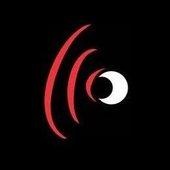As my DAW, I use FL Studio. It's a bit ill-reputed but the newer versions actually do a great job.
My choice here is a matter of taste. There's nothing you could do with, say, Propellerhead's Reason or Ableton, that you couldn't with FL Studio.
The differences lie withing the UI and the default plugins. And I do love FL Studio's UI.
Some of the Synthies I use are Sylenth1 and Sytrus (as of FL Studio).
I try to get all my sounds out of the most simplest OSCs.
The more you move away from sythies towards samplers, the weaker the sounds you get.
There's almost no chance to get around that.
I still use some, however, for classic popular sounds, I'm tired of reproducing all the time anew.
One of them is reFX Nexus. Not too powerful but with some really handy presets.
Much is about how you use your FX channels, though, and how you master.
However, for orchestral stuff, the opposite is the case: you won't get around samplers here.
I really like EastWest's libraries, but they're really quite expensive to start with (at least if you mean to buy them instead of using their cloud-base license).
I love their sounds and the vast opportunities they provide. There's a knob for everything.
In my setup I linked almost every parameter of every instrument to a midi controller to have full control over automation.
What I definitely want to get in my hands is the "Hans Zimmer Percussion" library published by Spitfire Audio.
Besides that, I try to get as much from real instruments as possible.
I myself play a bunch. But I do look for instrumentalists whenever I need something that I can't play myself.
Even if you use a sampler for the whole orchestra, just for example a real recorded cello can do a lot in terms of realism.
As middleware, I really enjoy using fmod studio. It's an awesome tool for creating dynamic, reactive and adaptive soundtrack.
It does have some flaws but if you know them, they're quite ignorable.
It's free to use under $500k budget and still has a fair licensing model elsewise.
And it provides APIs for Unity and Unreal. You have a lot control. And debugging is done with ease.
You do, however, have to code some things yourself if you really want to get the full potential out of it.
Finally, there're a few notes I'd like to share:
1.) Having better equipment doesn't make you a better producer or composer.
Instead, learning on low-end gear will really help you when later upgrading your stuff.
2.) Regarding realistic instrument sounds, though, you will, at some point, require proper VSTs.
Until then, try free sf2 files or samples and try to make them sound as realistic as possible.
3.) Learn about mastering! Most of it is about frequency separation and is done through equalizing and stereo separation.
Learn why and how to do that. The more you get into it, you will develop "an ear for it".
And soon you will go "oh, the higher mids are to loud and maybe the violins should go a bit more left"
4.) Try different styles. Don't use the same recipe all over again.
Do a Reggae Tune, after that try some techno, the DubStep, then Rock, then maybe some orchestration.
You may not always feel that you've been successfull. But trust me, you will learn a lot eitherway.
5.) Don't buy software that you aren't willing to learn. Having an awesome toy doesn't enable you to play with it.
There is time to be invested here. Be aware of that.
6.) Learn about music theory. It might sound boring at first but you might learn to love it.
Especially when you'll find out what doors that opens 
Hope, that helps 













